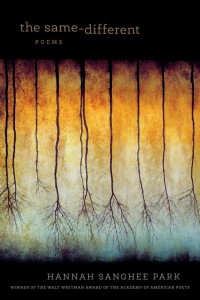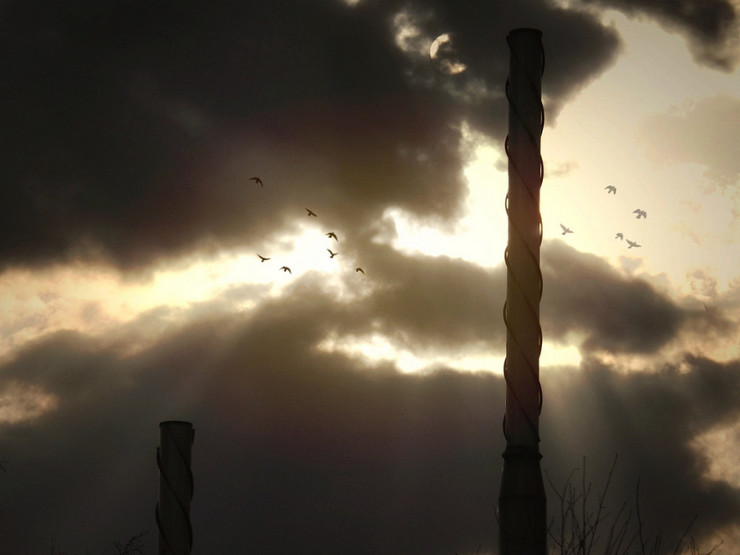In late August, the Academy of American Poets announced the recipients of a number of Academy awards, which also carry significant financial stipends (especially significant for poetry). This year, Robert Hass received the Wallace Stevens Award for mastery in the art of poetry (with a $100, 000 check). Tracy Smith received the Fellowship for poetic achievement ($25, 000); she won the Pulitzer Prize for poetry in 2011. Rigoberto Gonzalez received the Lenore Marshall Poetry Prize for the most outstanding book of poetry published the previous year (Unpeopled Eden) ($25, 000).
W.S. Merwin’s Selected Translations won the Harold Morton Landon Translation Award ($1, 000). Luigi Bonaffini’s The Bedroom won the Raiziss / DePalci Book Prize ($10, 000) for outstanding translation of modern Italian poetry into English. And Wendy Chen won the first Aliki Perroti and Seth Frank Most Promising Young Poet Award ($1, 000) for her poem “They Sail Across the Mirrored Sea.”
Also announced in the group of awards was the James Laughlin Award for a superior second book of poetry ($5, 000 plus distribution to members of the Academy, which by definition makes it a poetry bestseller). This year the award went to Brian Blanchfield for his A Several World.
Blanchfield’s previous collection was entitled Not Even Then. He’s received a number of recognitions and honors, including being a finalist for the National Book Award in Poetry (and that for a first collection). His poetry has been published in The Nation, The Paris Review, Guernica, The Brooklyn Rail and Brick, among others. He serves as the poetry editor of Fence, and he teaches at the University of Arizona in Tucson.
The poems in A Several World are not like anything I’ve read before. He uses language in innovative, often disorienting ways, and that is perhaps the point. In some cases, he invents words.
This poem from Blanchfield’s collection is about standing in line to view a film entitled The Clock, which, according to Wikipedia, is a “looped 24-hour montage that functions as a clock. Its scenes are selected from cinema and television history, with real-time references to the time of day.” (Unfortunately, I missed it, but people did actually stand in line to see it. I’ve seen the photos.) Pay attention to what he does with numbers, true to the “24 hours” of the film.
Eclogue in Line to View The Clock by Christian Marclay

one of fifty, say, in the queue, fiftieth first
and advancing little, somewhere within
the seventy-two-hour window of efficacy
for post-exposure prophylaxis, and later,
in the screening room watching The Clock
with the few dozen others in rows behind and ahead
who had waited too. He knows he has to
but he hasn’t yet. We pick it up there.
It is two thousand eleven a few more days.
The movie tells what time it is.
In poetry too we all face forward.
Earlier this year, the Academy announced the winner of the Walt Whitman Award for outstanding first book of poetry. The recipient was Hannah Sanghee Park for The same-different: Poems. Park received $5, 000, publication of the work (this one by LSU Press) and a one-month residency at the Vermont Studio Center.
Park received her MFA degree from the Iowa Writers Workshop. She’s received a number of fellowships and honors, and it was poet Rae Armantrout who selected Park to receive the Walt Whitman Award. Park lives and works in Los Angeles.
Like Blanchfield, Park artfully plays with language. In her case, however the language is recognizable. She teases out sounds and meanings, alliteration and homonyms. Her poems seem simple, but they’re not. These simple words are packed with meaning. Look at what she does with this one.
One Truth

it won’t hold water,
a sieve vs. vase
vis-à-vis I’ve saved
all the best truths
for this (the truth) a
nightlong longing for
a night of lying
with you. I do the
next best thing: a glance
(glancing) (it contains
all I want to contain).
Forgive the shy, the away. If
truth be told, I can’t be true.
These awards by the American Academy of Poets are perhaps not as prestigious or well known as the Pulitzer Prizes or National Book Awards. But they are important—recognitions of the work of poets by poets.
Photo by Andy B, Creative Commons, via Flickr. Post by Glynn Young, author of the novels Dancing Priest and A Light Shining, and Poetry at Work.
__________________________

“I require all our incoming poetry students—in the MFA I direct—to buy and read this book.”
—Jeanetta Calhoun Mish
- Poets and Poems: Mary Brown and “Call It Mist” - September 18, 2025
- “Horace: Poet on a Volcano” by Peter Stothard - September 16, 2025
- Poets and Poems: The Three Collections of Pasquale Trozzolo - September 11, 2025

SimplyDarlene says
maybe i’ll park beside
the last poet’s
roots blooming
above
others whose leaves
bare no reflection